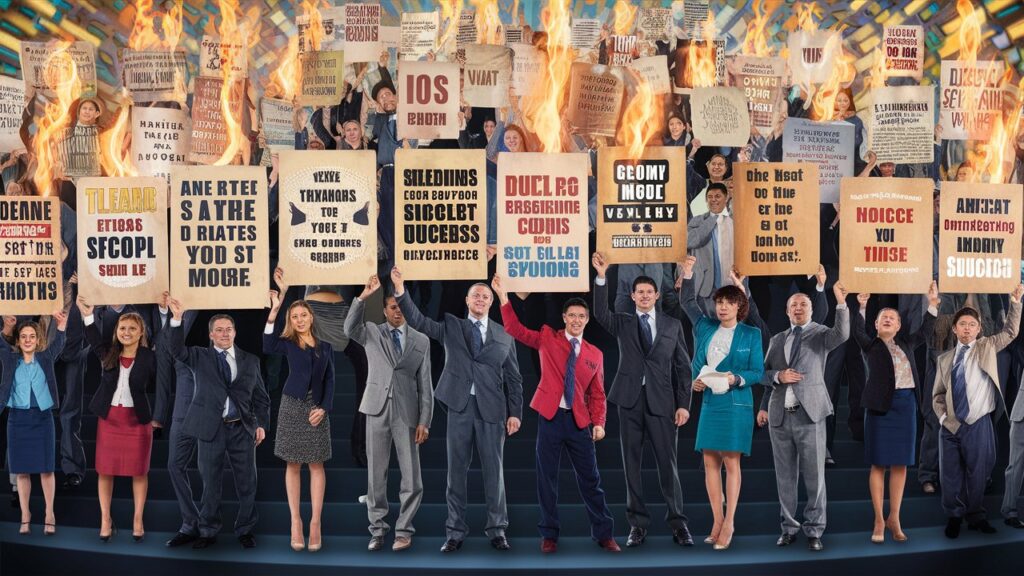Introduction: Why Motivational Quotes Matter
Motivational quotes have transcended generations, cultures, and languages to become timeless tools for inspiration. These succinct phrases, often born from the wisdom of leaders, thinkers, and everyday heroes, serve as mental fuel during moments of doubt, fear, or stagnation. But why do they resonate so deeply? The answer lies in their ability to condense complex emotions and universal truths into digestible, actionable reminders. Whether pinned to a vision board, shared on social media, or recited during a morning routine, motivational quotes act as catalysts for mindset shifts. This article explores the science behind their impact, how to craft them for different life goals, and practical ways to integrate them into daily life. By the end, you’ll understand why these words are more than clichés—they’re blueprints for resilience and growth.
The Science Behind Motivational Quotes: How Words Shape Mindsets
The human brain is wired to respond powerfully to language. Neuroscientists have found that positive affirmations and motivational statements activate the prefrontal cortex, the region responsible for decision-making and goal-setting. When you read or hear a quote like “Success is not final, failure is not fatal: It is the courage to continue that counts” (Winston Churchill), your brain releases dopamine, a neurotransmitter linked to motivation and reward. This biochemical reaction creates a feedback loop, encouraging repetition of the behavior—in this case, adopting a resilient mindset.
Moreover, motivational quotes often leverage cognitive reframing, a psychological technique that helps individuals reinterpret challenges. For example, “The only way to do great work is to love what you do” (Steve Jobs) shifts focus from external pressures to internal passion. By repeatedly exposing ourselves to such messages, we rewire neural pathways, fostering habits of optimism and perseverance. Studies even suggest that employees who engage with motivational content exhibit higher productivity and job satisfaction. In essence, these quotes are not just words; they’re tools for neuroplasticity.
Crafting Motivational Quotes for Different Life Goals
Not all quotes resonate equally with every individual or situation. Tailoring motivational messages to specific goals amplifies their effectiveness. Below are key areas where quotes can drive transformation:
1. Personal Growth and Self-Belief
Quotes like “Believe you can, and you’re halfway there” (Theodore Roosevelt) target self-doubt, a common barrier to growth. For those struggling with impostor syndrome, affirmations such as “You are enough just as you are” (Megan Markle) reinforce self-worth. Personal growth thrives on mindset shifts, and curated quotes act as daily reminders to embrace vulnerability and progress over perfection.
2. Career and Ambition
In professional settings, quotes like “Opportunities don’t happen. You create them” (Chris Grosser) emphasize proactive problem-solving. For entrepreneurs, “The biggest risk is not taking any risk” (Mark Zuckerberg) normalizes failure as part of the journey. These messages reframe challenges as stepping stones rather than roadblocks.
3. Relationships and Empathy
Motivational wisdom isn’t limited to individual success. Quotes such as “People will forget what you said, but they’ll never forget how you made them feel” (Maya Angelou) highlight the importance of emotional intelligence. In conflicts, “Hurt people hurt people” reminds us to approach others with compassion.

4. Health and Wellness
For fitness journeys, “The body achieves what the mind believes” underscores the mind-body connection. Mental health-focused quotes like “It’s okay to not be okay” destigmatize struggles, encouraging seeking help.
How to Use Motivational Quotes Daily: Practical Strategies
Integrating quotes into routines requires intentionality. Start by identifying pain points: What areas of your life need encouragement? Next, curate a personalized library of quotes—save them in a journal, phone notes, or sticky posters. For example, placing “Start where you are. Use what you have. Do what you can” (Arthur Ashe) on your workspace combats procrastination.
Another strategy is pairing quotes with action. Instead of passively reading “Dream big,” ask yourself: What’s one small step I can take today toward that dream? Combine quotes with visualization exercises or goal-setting frameworks like SMART goals. Social accountability also helps—share a daily quote with a friend or online community to foster mutual encouragement.
Avoiding the Pitfalls: When Motivational Quotes Fall Short
While powerful, motivational quotes are not a panacea. Over-reliance can lead to toxic positivity, where genuine struggles are dismissed with platitudes like “Just stay positive!” This invalidates real emotions and ignores systemic barriers. To avoid this, balance inspiration with critical thinking. Use quotes as starting points for deeper reflection: How does “Failure is the condiment that gives success its flavor” (Truman Capote) apply to my unique challenges?
Additionally, generic quotes may lack cultural or situational relevance. A quote like “Follow your passion” might not resonate with someone facing financial instability. Customization is key—modify existing quotes or create your own to reflect personal values and circumstances.
Conclusion: Harnessing the Lifelong Impact of Motivational Quotes
Motivational quotes are more than fleeting bursts of inspiration—they’re mirrors reflecting our deepest aspirations and fears. By understanding their psychological roots, tailoring them to individual goals, and applying them mindfully, we transform simple phrases into lifelong companions on the journey to success. Let these words ignite your inner fire, but remember: The true power lies not in the quotes themselves, but in the actions they inspire.
Frequently Asked Questions (FAQs)
Q1: Can motivational quotes really change my life?
A: While quotes alone won’t overhaul your life, they serve as mental triggers for action. Consistency in applying their lessons drives tangible change.
Q2: What’s your favorite motivational quote?
A: “You miss 100% of the shots you don’t take” (Wayne Gretzky). It’s a universal reminder to embrace courage over complacency.
Q3: How often should I read motivational quotes?
A: Daily exposure is ideal. Incorporate them into morning routines, work breaks, or bedtime reflections to maintain momentum.
Q4: Are motivational quotes culturally biased?
A: Some quotes reflect specific cultural perspectives. Seek diverse voices (e.g., Malala Yousafzai, Nelson Mandela) for inclusive inspiration.
Q5: Can I create my own motivational quotes?
A: Absolutely! Personal quotes rooted in your experiences often hold the deepest meaning. Start by journaling lessons from challenges you’ve overcome.
This structure ensures your article is comprehensive, keyword-rich, and deeply informative while maintaining reader engagement.

